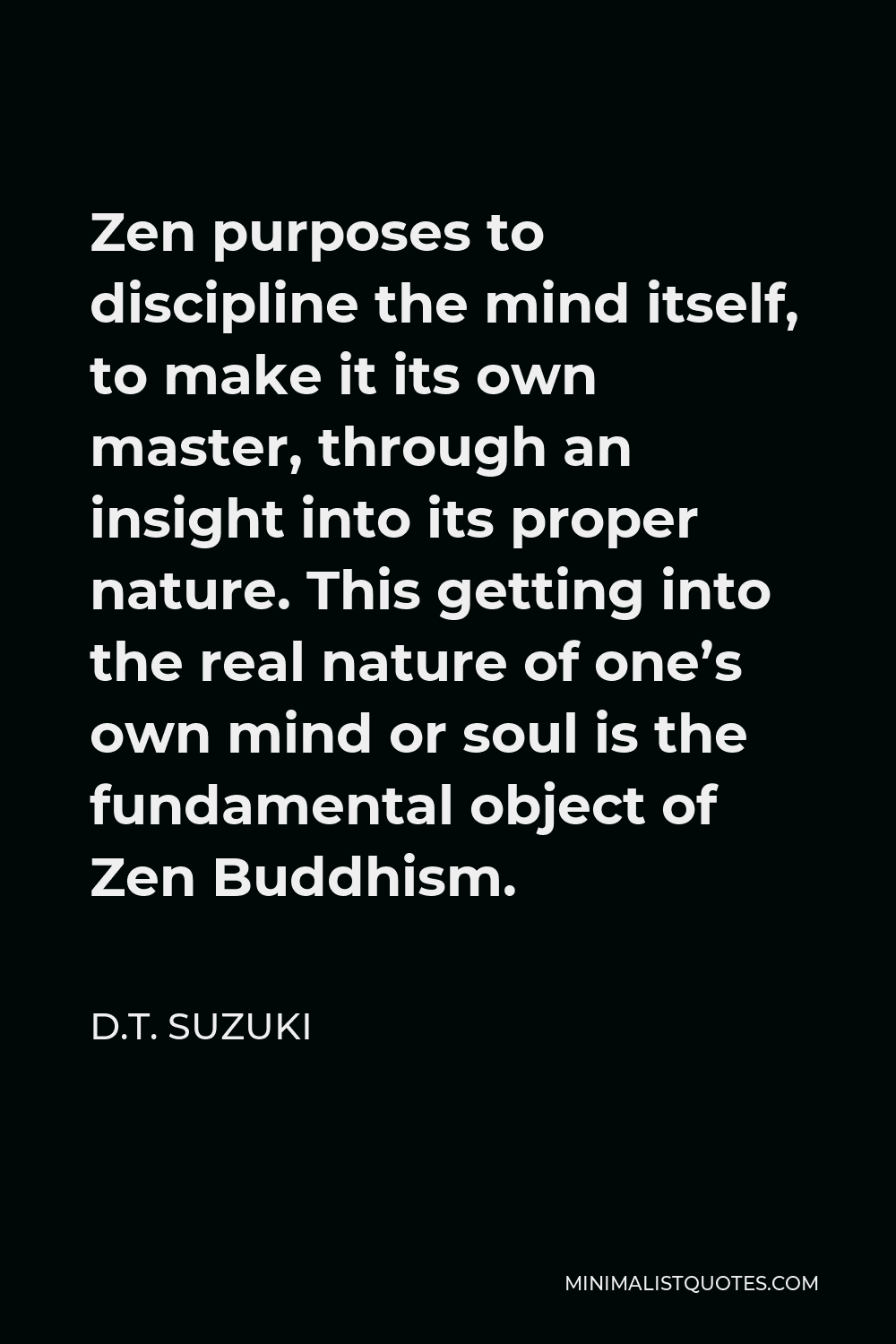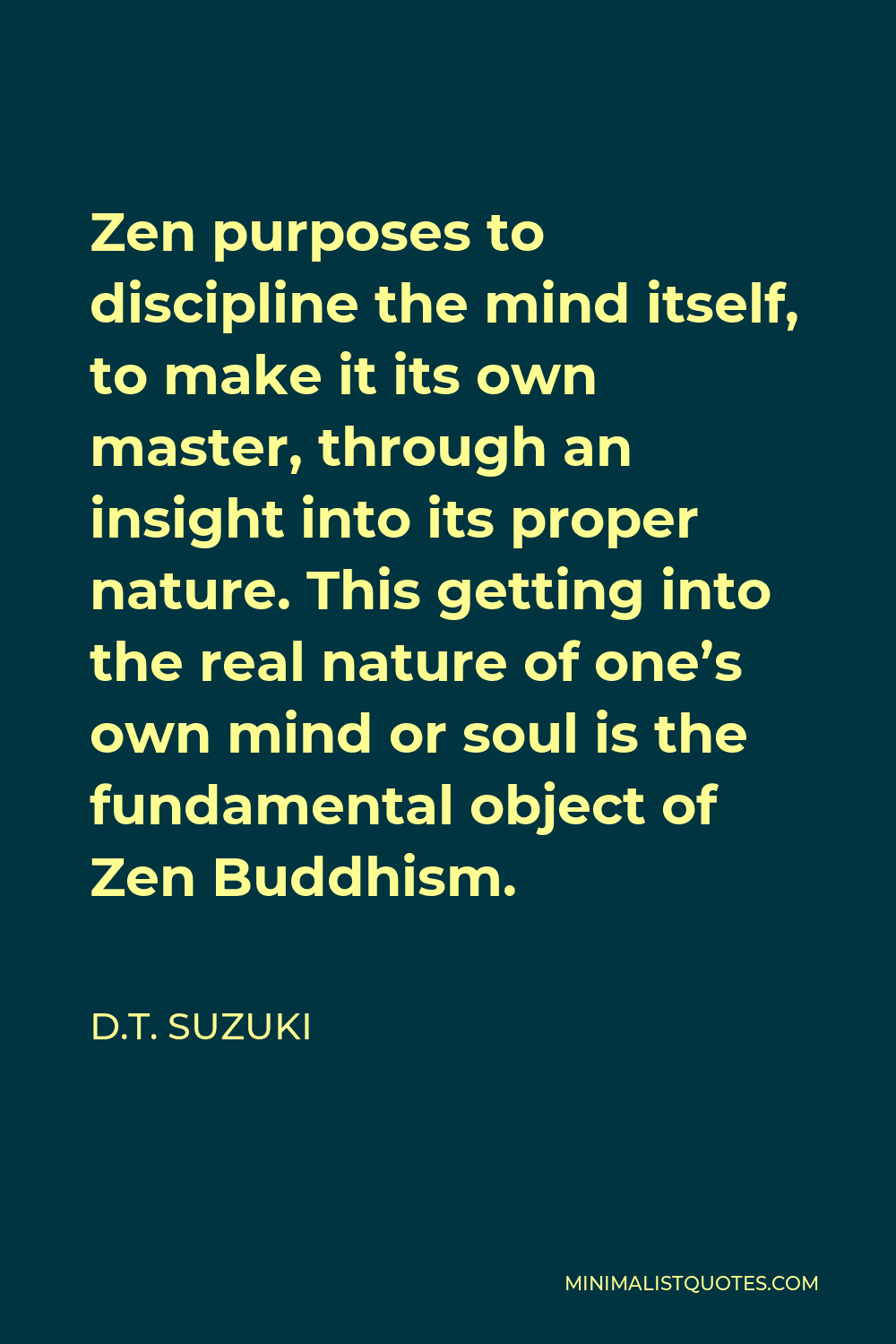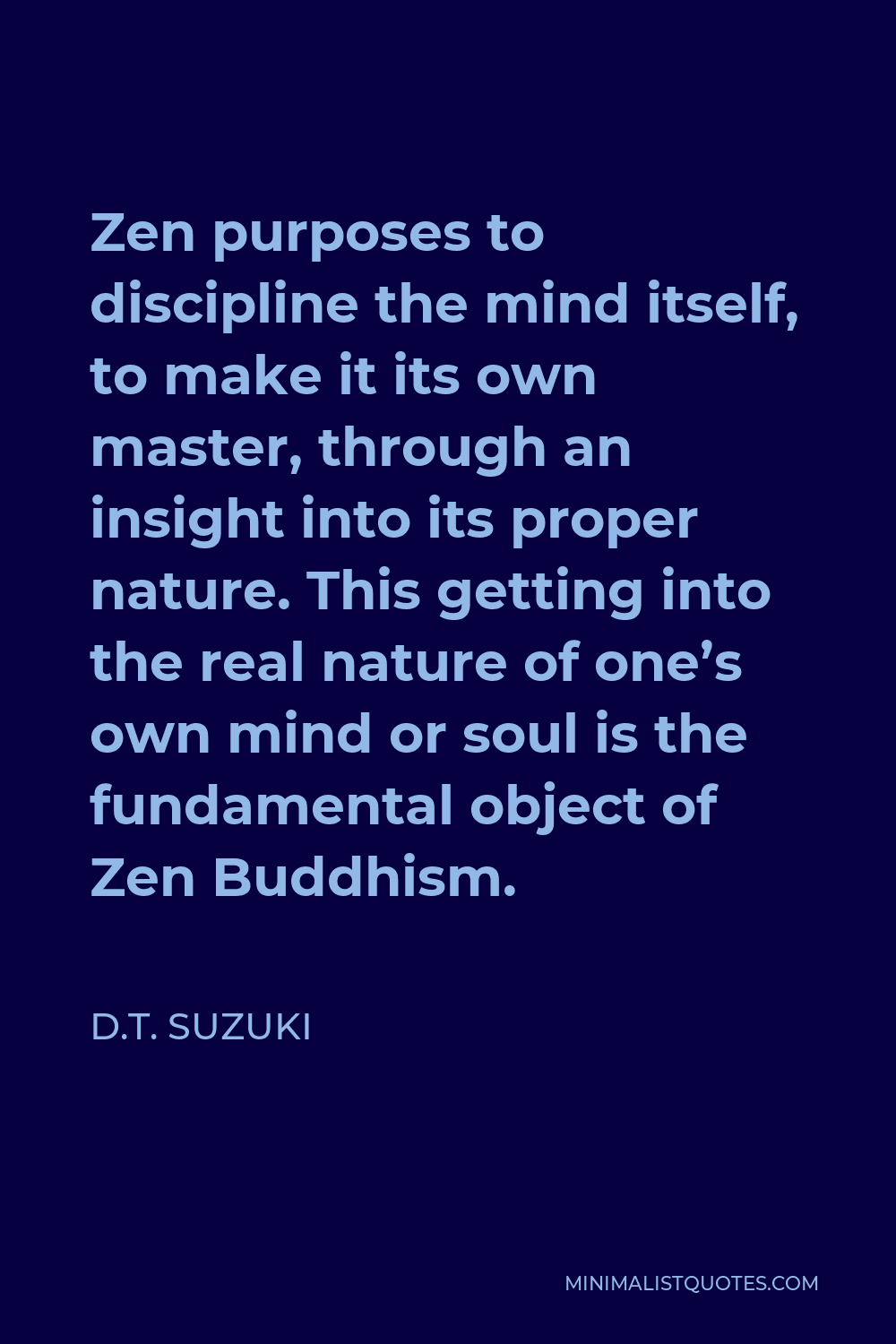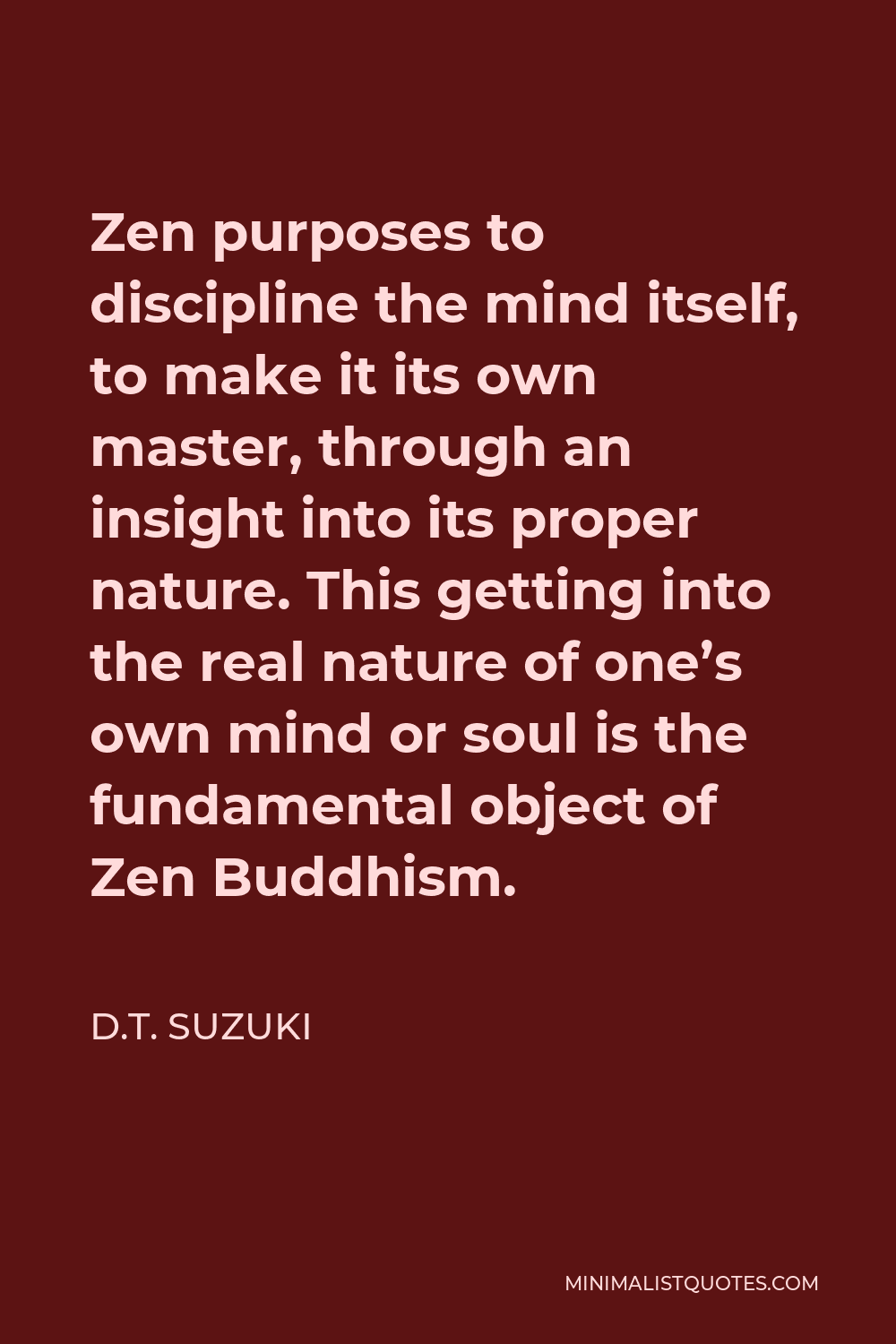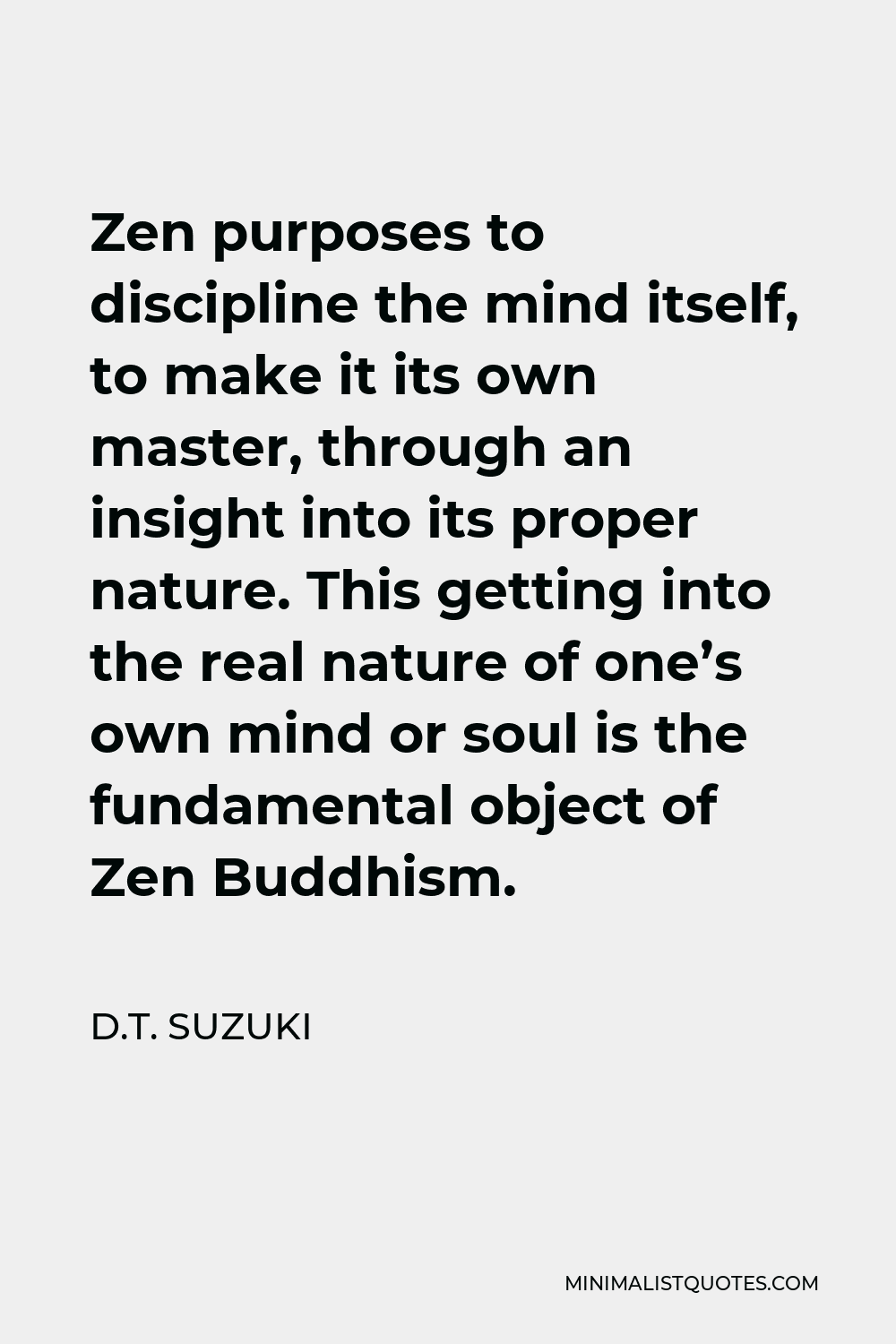Unless we agree to suffer we cannot be free from suffering.
D.T. SUZUKIZen purposes to discipline the mind itself, to make it its own master, through an insight into its proper nature. This getting into the real nature of one’s own mind or soul is the fundamental object of Zen Buddhism.
More D.T. Suzuki Quotes
-





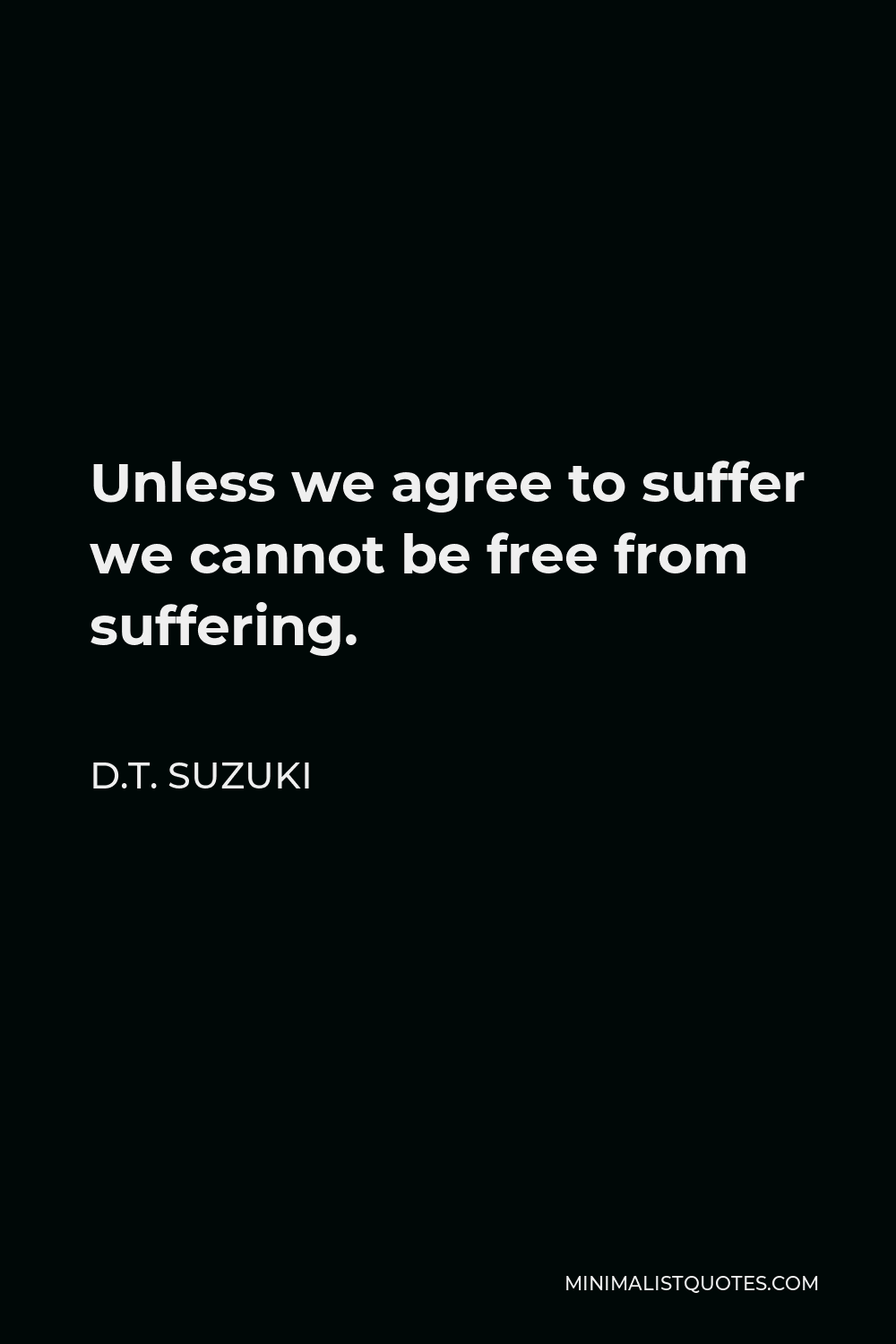
-





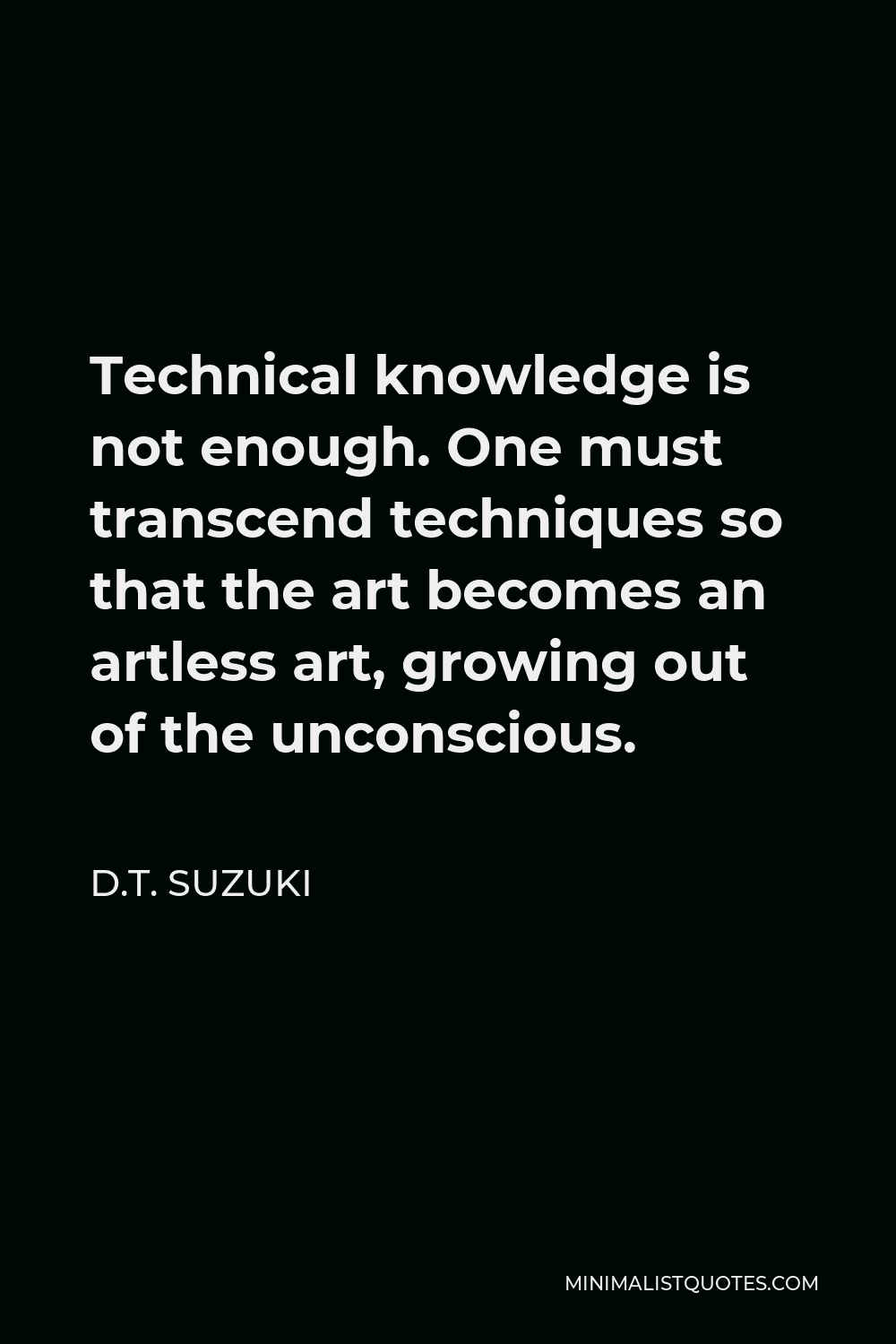
Technical knowledge is not enough. One must transcend techniques so that the art becomes an artless art, growing out of the unconscious.
D.T. SUZUKI -





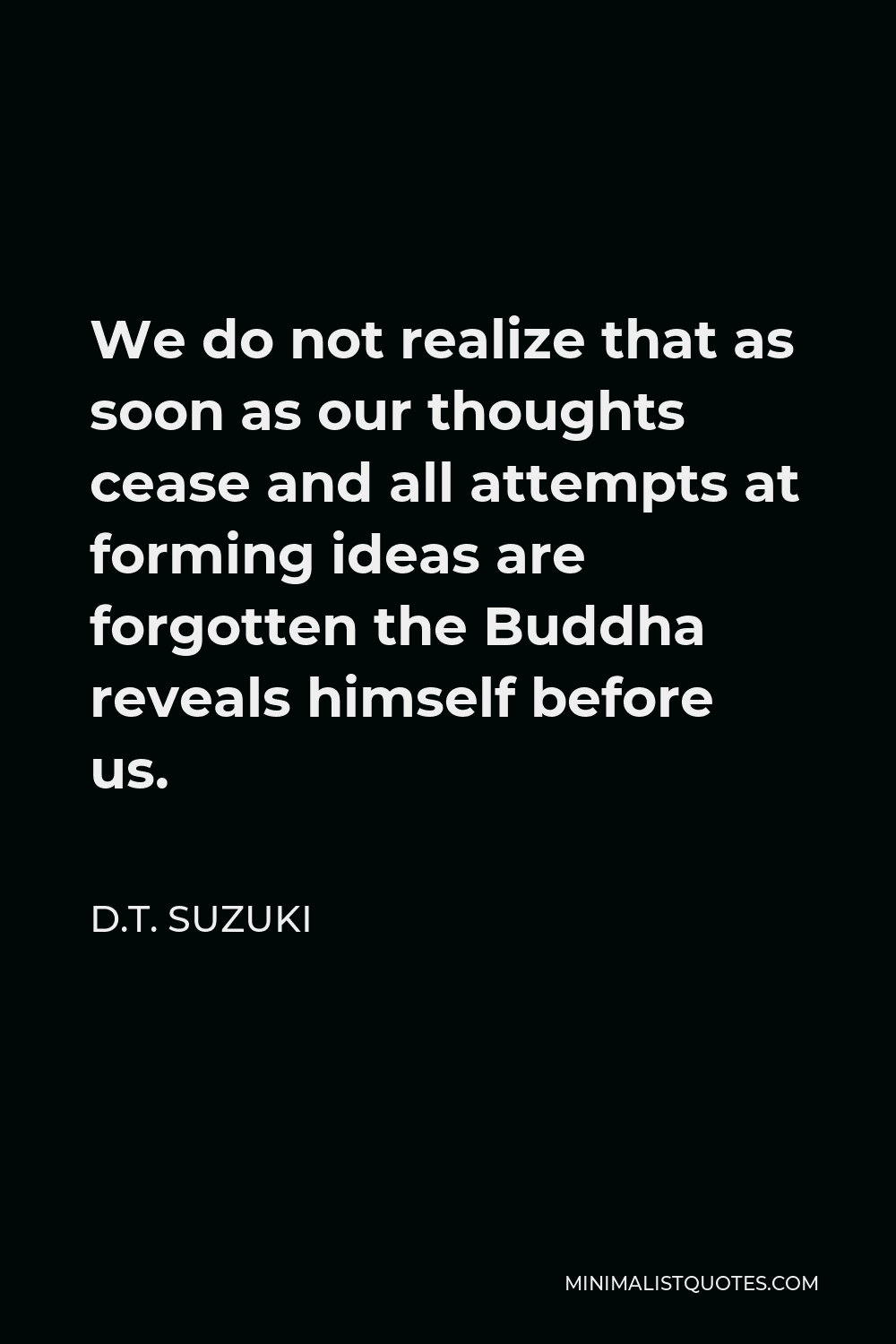
We do not realize that as soon as our thoughts cease and all attempts at forming ideas are forgotten the Buddha reveals himself before us.
D.T. SUZUKI -





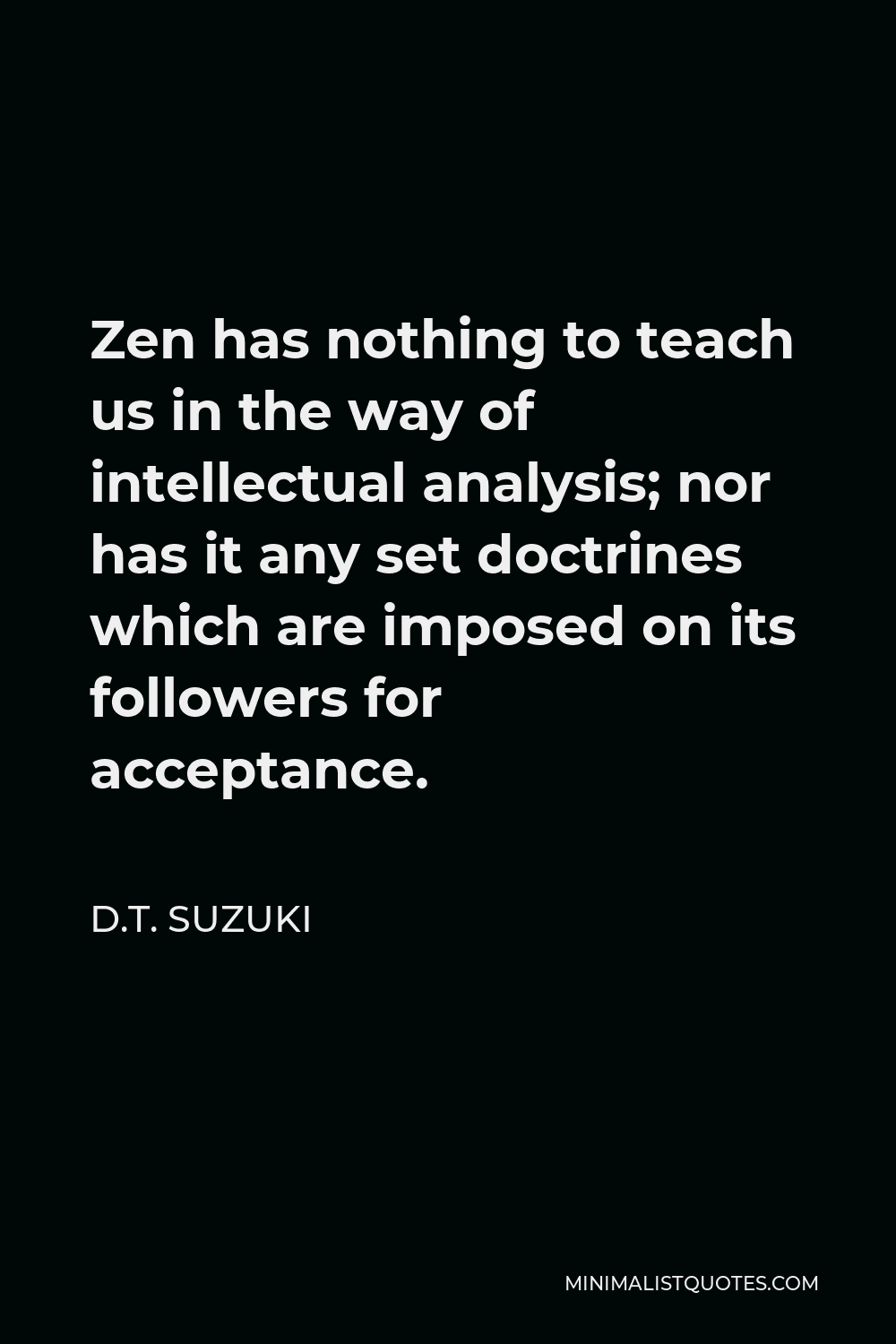
Zen has nothing to teach us in the way of intellectual analysis; nor has it any set doctrines which are imposed on its followers for acceptance.
D.T. SUZUKI -





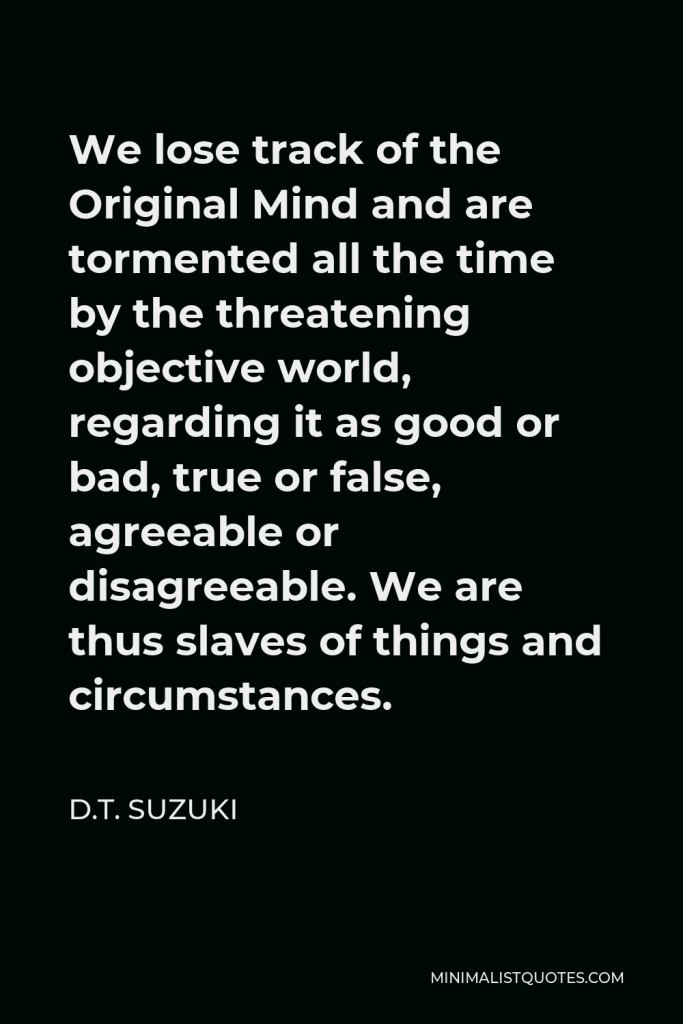

We lose track of the Original Mind and are tormented all the time by the threatening objective world, regarding it as good or bad, true or false, agreeable or disagreeable. We are thus slaves of things and circumstances.
D.T. SUZUKI -





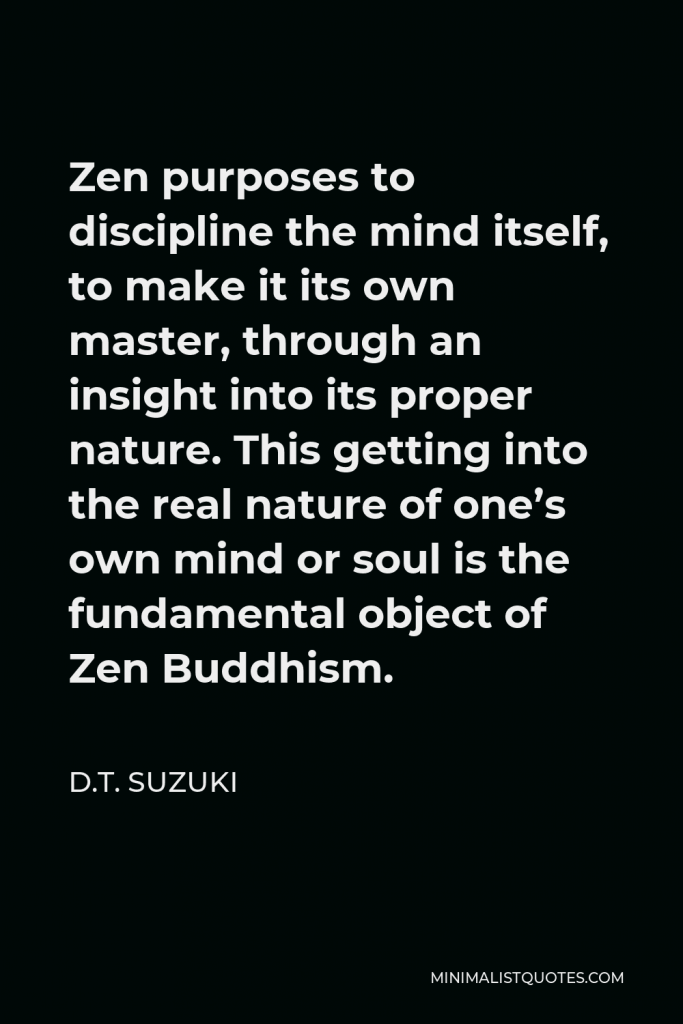

Zen purposes to discipline the mind itself, to make it its own master, through an insight into its proper nature. This getting into the real nature of one’s own mind or soul is the fundamental object of Zen Buddhism.
D.T. SUZUKI -





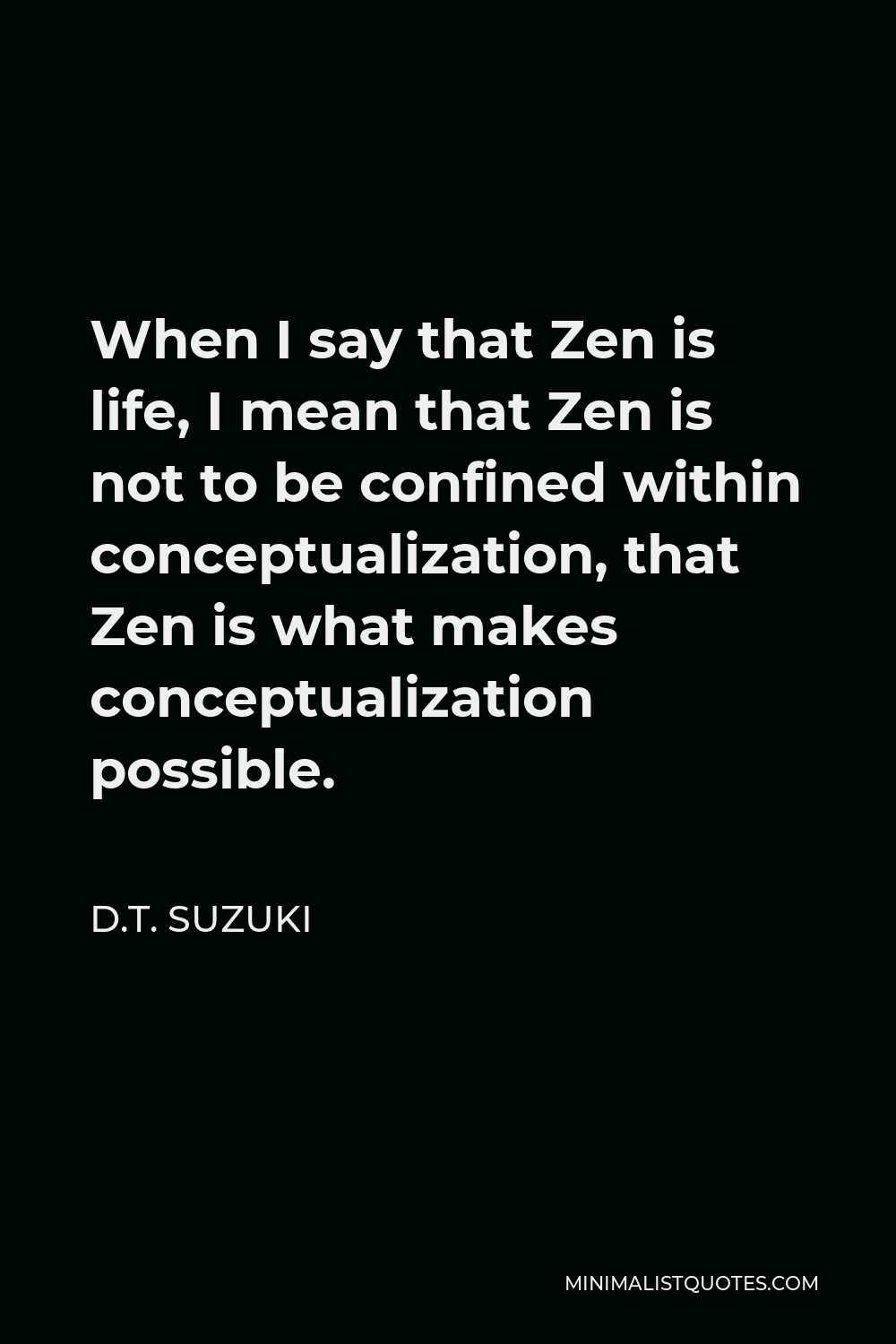
When I say that Zen is life, I mean that Zen is not to be confined within conceptualization, that Zen is what makes conceptualization possible.
D.T. SUZUKI -





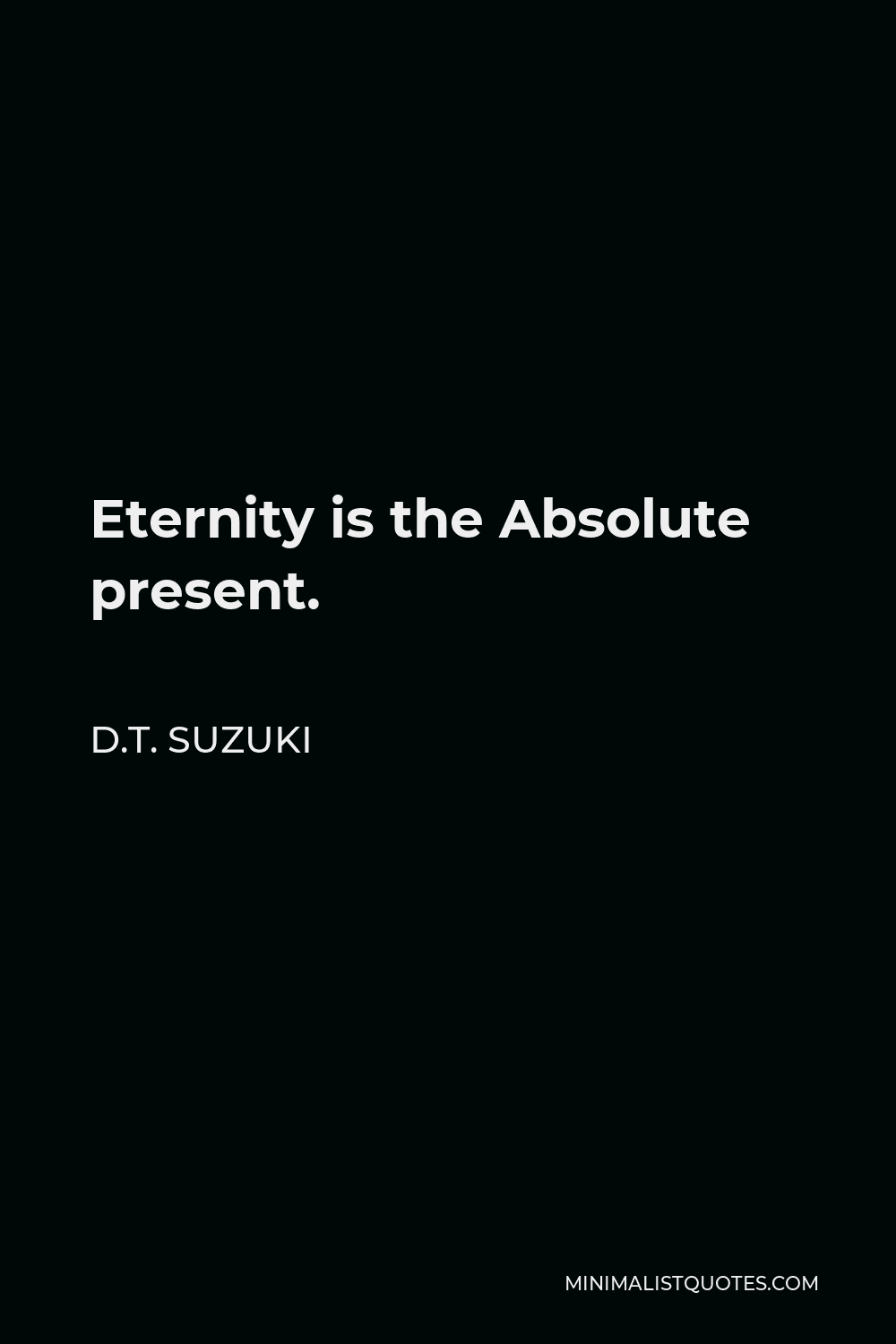
Eternity is the Absolute present.
D.T. SUZUKI -





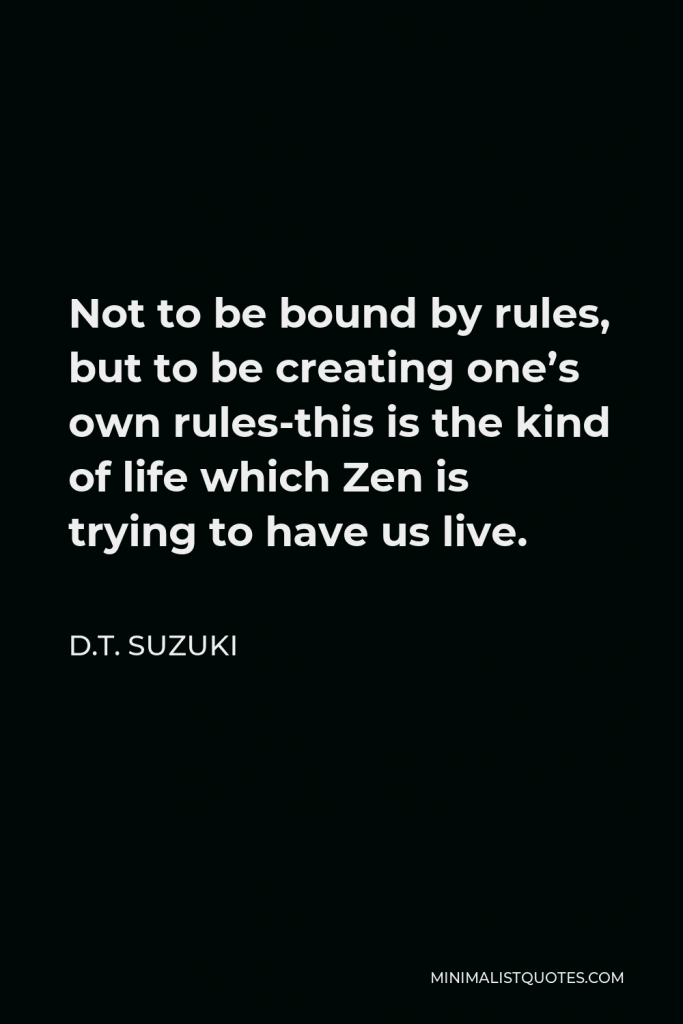

Not to be bound by rules, but to be creating one’s own rules-this is the kind of life which Zen is trying to have us live.
D.T. SUZUKI -







The fighter is to be always single-minded with one object in view: to fight, looking neither backward nor sidewise. To go straight forward in order to crush the enemy is all that is necessary for him.
D.T. SUZUKI -





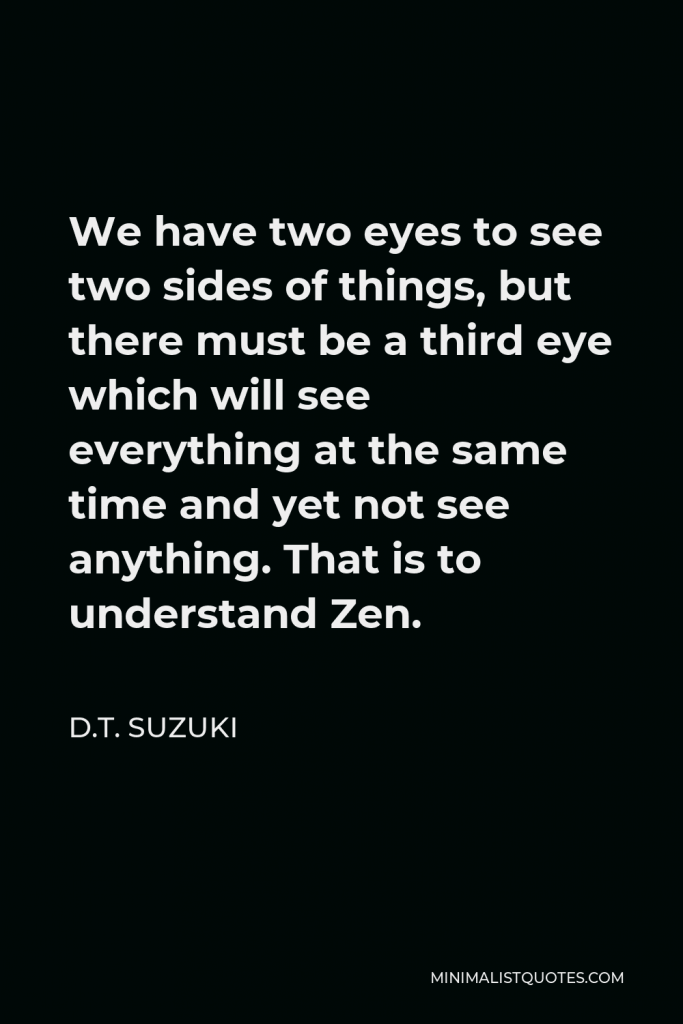

We have two eyes to see two sides of things, but there must be a third eye which will see everything at the same time and yet not see anything. That is to understand Zen.
D.T. SUZUKI -






That’s why I love philosophy: no one wins.
D.T. SUZUKI -






Zen has no business with ideas.
D.T. SUZUKI -





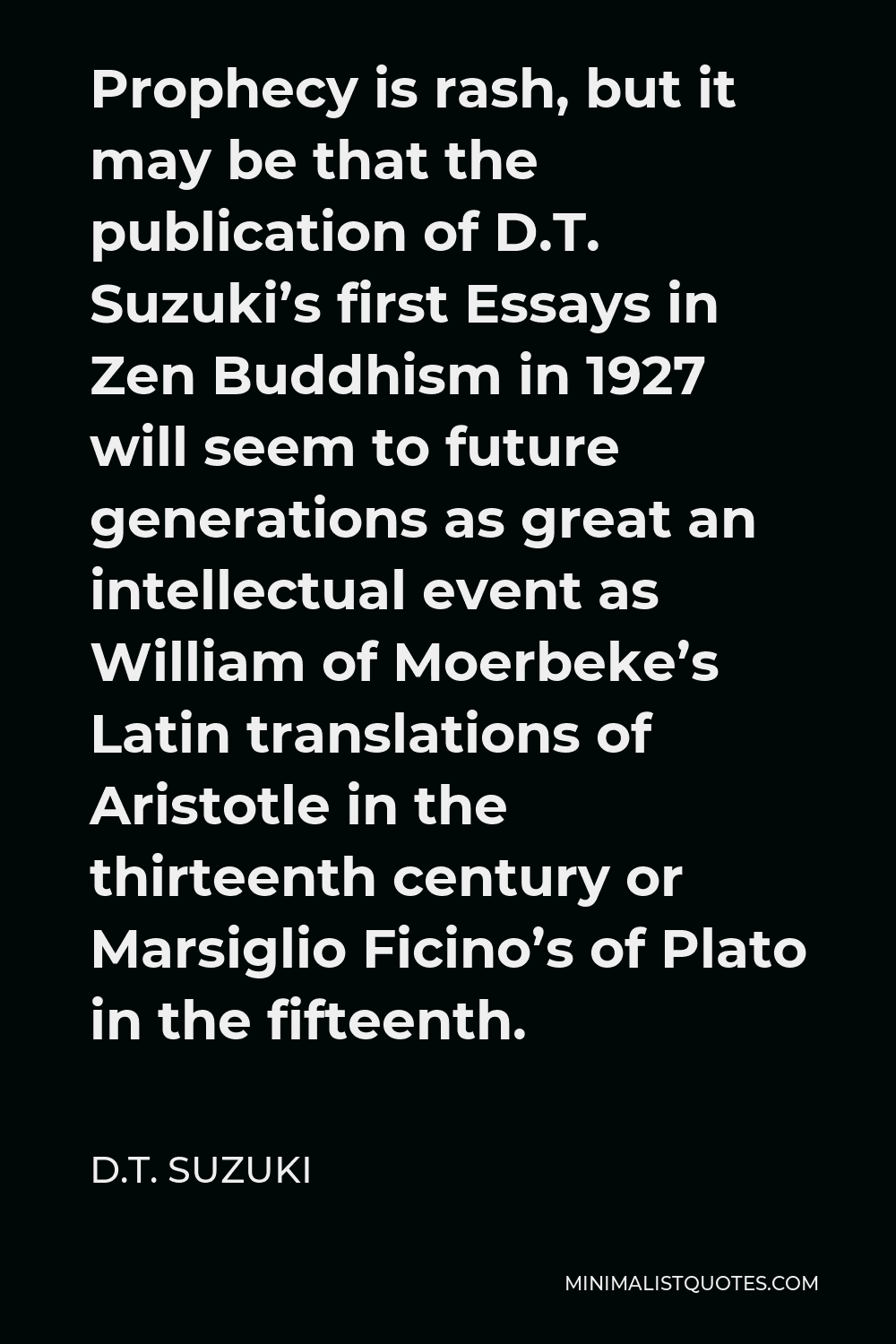
Prophecy is rash, but it may be that the publication of D.T. Suzuki’s first Essays in Zen Buddhism in 1927 will seem to future generations as great an intellectual event as William of Moerbeke’s Latin translations of Aristotle in the thirteenth century or Marsiglio Ficino’s of Plato in the fifteenth.
D.T. SUZUKI -





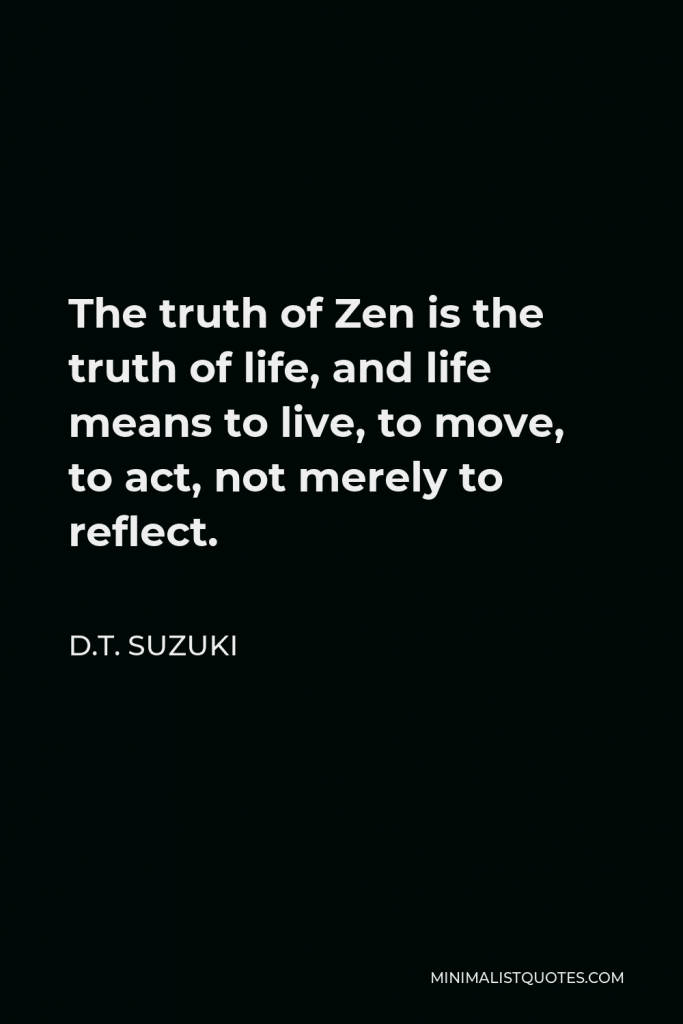

The truth of Zen is the truth of life, and life means to live, to move, to act, not merely to reflect.
D.T. SUZUKI -





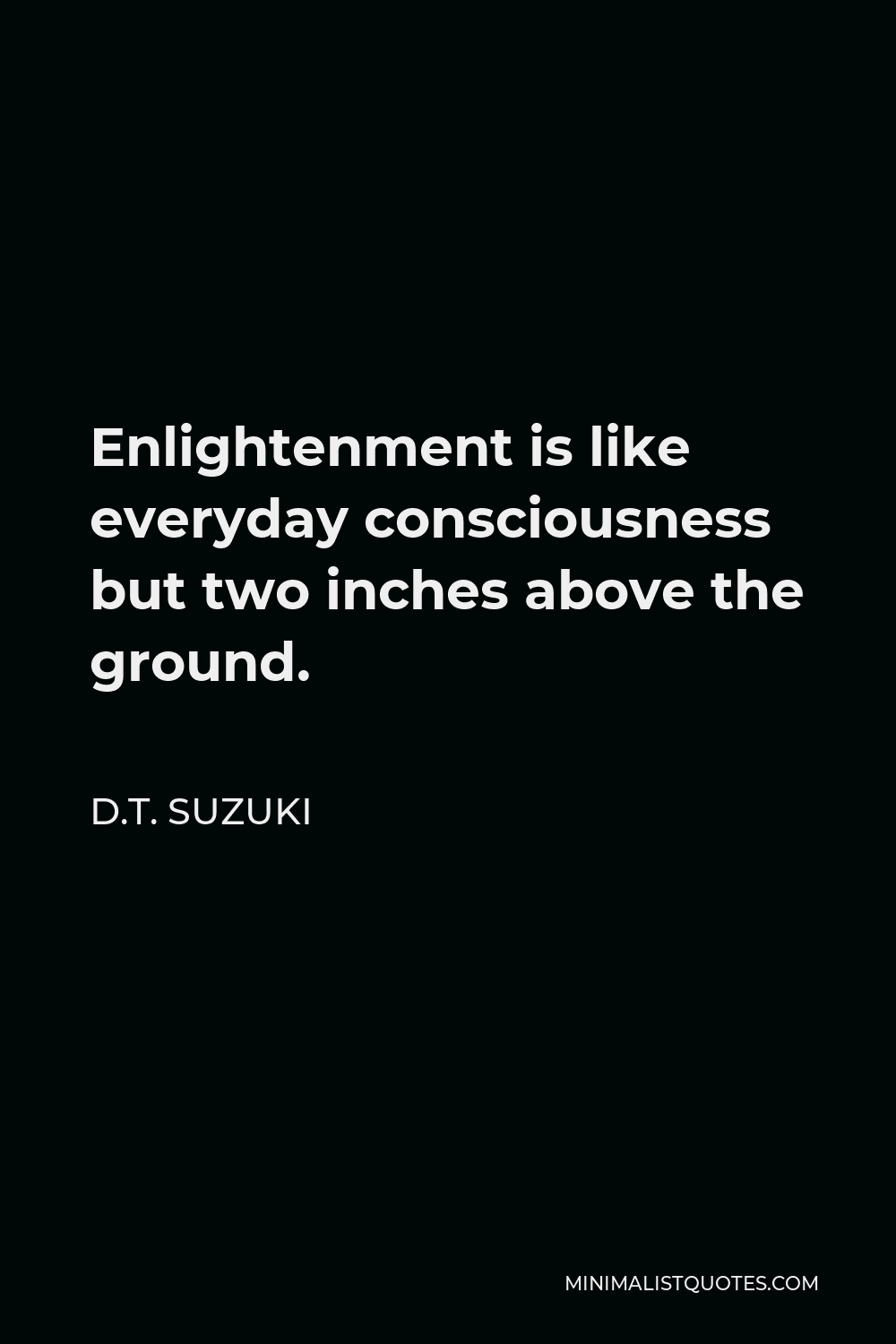
Enlightenment is like everyday consciousness but two inches above the ground.
D.T. SUZUKI
